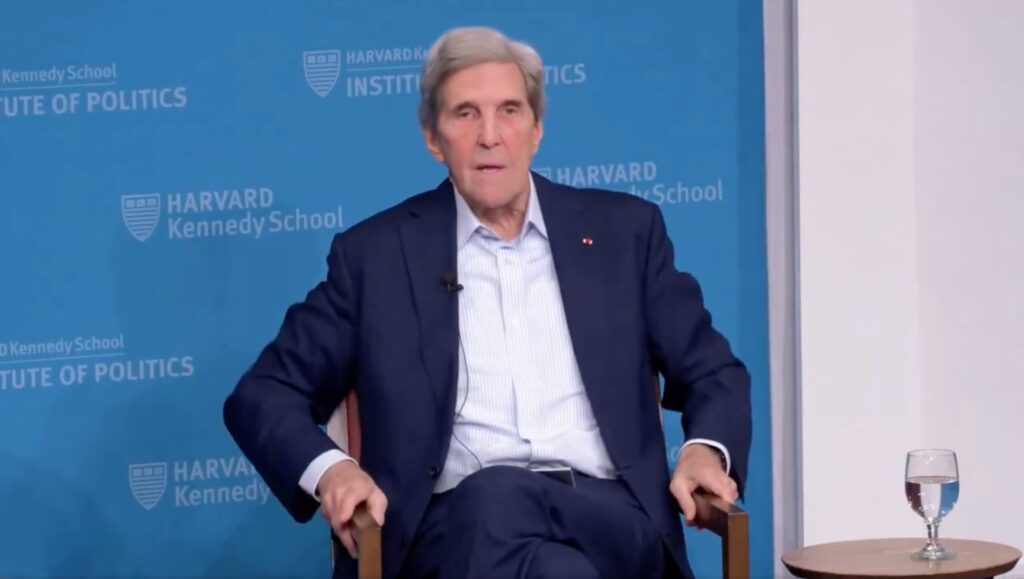John Kerry recently made a significant appearance at the Harvard Kennedy School’s Institute of Politics, where he discussed pressing issues surrounding climate change. The timing of his comments is particularly notable, as they come just before the Biden administration is set to conclude. Kerry, who served as the U.S. Special Presidential Envoy for Climate, conveyed alarming concerns about the current state of the environment. He suggested that the United States is teetering on the edge of declaring a “climate emergency,” calling for heightened awareness and behavioral changes from the public to address what he believes is a dire situation. His statements raise questions about what such a declaration would entail and whether it might be viewed as a threat to those who resist the changes he advocates.
In his interview, Kerry emphasized the need for collective action, implying that people’s behaviors must shift dramatically to confront what he perceives as a significant transitional challenge for the planet. He characterized the climate crisis as an emergency that demands urgent attention, claiming that the public needs to grasp the severity of the situation. However, Kerry did not specify what consequences might arise for individuals or groups who fail to align with the necessary behavioral changes he described, leaving room for interpretation on whether his statements were intended as a form of coercive pressure.
Kerry’s remarks included a dig at the environmental policies associated with the transition of President-elect Donald Trump, suggesting that the public should refocus their attention on the detrimental impacts of those policies. Regrettably, he did not furnish any concrete evidence supporting his assertion that approximately seven million people die annually due to poor air quality. This claim adds to the swirling controversies surrounding Kerry’s credibility and the narrative he presents about climate-related fatalities. Critics often question such figures, pointing out that without transparency and data backing up the claims, the discourse on environmental crises may become sensationalized.
A focal point of the discussion was the apparent hypocrisy in Kerry’s own lifestyle choices, particularly his frequent use of private jets. Republican representative Mike Waltz confronted Kerry about this inconsistency, highlighting the dissonance between his environmental advocacy and personal practices that contribute to carbon emissions. These moments of confrontation can undermine Kerry’s messages about climate change and the need for behavioral changes among the population, as critics cite his actions as contradictory to his stated beliefs.
The conversation about climate change continues to evolve, especially within political and academic circles, as figures like Kerry advocate for urgent action. His call for a climate emergency reflects broader themes of alarmism associated with climate discourse, suggesting a belief that time is running out to implement necessary changes. The rhetoric surrounding climate emergencies serves to galvanize support for aggressive policies and initiatives but also faces opposition from those who challenge the science or the proposed solutions. The friction between urgency and skepticism underscores the complexity of climate negotiations and the myriad factors influencing public opinion.
As discussions about climate policy move forward, Kerry’s comments at Harvard serve as both a rallying cry for action and a lightning rod for criticism. With the global climate debate at a critical juncture, the tension between advocacy and opposition will likely shape future environmental policies and initiatives. Kerry’s insistence on reorienting public behavior and action against climate change reveals a broader need for a collaborative approach to addressing environmental challenges, one that aligns individual behavior with collective goals while avoiding the pitfalls of hypocrisy that can undermine trust the public has in climate leadership.

